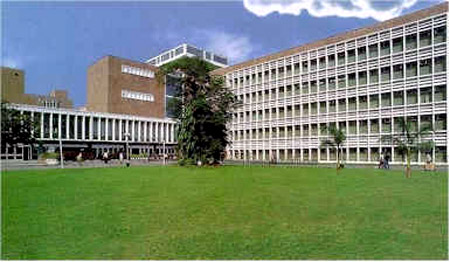Feb 22, 2026
Feb 22, 2026

But the institute, which boasts of some of the Indian subcontinent's top doctors, is also where concern for the poor neatly dovetails with medical advances and the latest equipment to provide world class health care.
AIIMS, which gets about $112 million a year from the government, has many firsts to its credit.
In August 2006, it became the first hospital in Asia to perform a robotic surgery on a patient suffering from prostate cancer. The procedure was performed with the help of the state of the art four armed Da Vinci S Robotic Surgical System, whereby a surgeon controls the robot's movements.
The most advanced form of laparoscopic surgery allows extreme surgical precision, thus minimizing the incidence of postoperative pain and complications.
The hospital's medical director P. Venugopal is a pioneer in heart transplant surgery and was the first in India to conduct the surgery in August 1994.
According to AIIMS officials, it was also the first in the world to use polymeric chain reaction on form-a-line fixed autopsy material to detect and confirm plague during an outbreak of the deadly disease in 1994.
All this is available to the poorest of the poor in the country.
"What makes AIIMS different from others is its concern for the poor. Everyday, over 8,000 patients are treated in our hospital of which over 90 percent are from the economically backward sections of society. We are not profit driven. Serving millions of needy is our mission," said Shakti Gupta, chief spokesperson of the premier institution.
All that is needed to verify the truth is a walk through the imposing campus in south Delhi. Thousands of patients from all corners of the country can be seen waiting their turn outside the OPD or inside the wards.
Many are critically ill and have traveled the distance from their hometowns and villages to avail of that stab at life, even if they are poor. They need to pay just Rs.10 (a few cents).
"We take Rs.10 to register the patient and an invoice is given to the patient, which he can carry for a year to avail OPD services," said Gupta, who is also the chief medical officer of R.P. Centre for Ophthalmology, a super speciality centre of the institute where 70 cataract surgeries a day are carried out.
In cases of inpatient treatment, the hospital takes just Rs.375, or about $8, for a 10-day stay in hospital with food and free medicine. "Besides, we take Rs.25 for registration fee for these patients," Gupta added modestly.
Patients from across the country are equally fervent in their praise.
"The number of private super-speciality hospitals are certainly growing in India, but they are out of the reach of the poor and middle class population. AIIMS is a government hospital and provides all modern facilities at a very minimal price," said S. Mohanty, who came all the way from the eastern Indian state of Orissa for his mother's heart operation.
"The cost of major surgeries in AIIMS is at least one tenth of private hospitals in India. There is no compromise in patient care or in maintaining standards of hygiene," Mohanty added.
Added S.N. Bhargava, a patient from Allahabad in Uttar Pradesh: "Doctors and the support staff at AIIMS are the best. In spite of their tight schedule, they never deal with patients in a bad way. The hospital is absolutely affordable."
Apart from its base in New Delhi, the institute also runs a 60-bed hospital for comprehensive rural health centre at Ballabhgarh in Haryana, a state adjoining the Indian capital. Keeping pace with its mission, the institute provides health cover to about 450,000 people through its Centre for Community Medicine.
Established after a parliament act, AIIMS, apart from providing patient care to millions of people across the country, also concentrates on training highly qualified teachers and research workers so a "steady stream of these could be maintained to meet the needs of the rapidly expanding health activities".
As provided in the act, AIIMS conducts teaching programmes in medical and paramedical courses both at undergraduate and postgraduate levels and awards its own degrees.
It also runs a College of Nursing and trains students for a graduate degree in nursing and post-certificate degrees by charging less than $10 a year.
Set up on over 100 acres of land, the institute conducts teaching and research work in 43 disciplines. Its faculty and research publish nearly 1,400 research publications a year.
Currently, the hospital has nearly 500 senior doctors and over 1,000 resident doctors apart from interns and students who play an active role in making the hospital what it is.
Senior resident doctors at AIIMS earn only about $400 a month, but stay on because of the invaluable experience and exposure that working there provides.
"We may not earn like executives working in multinational companies yet the exposure is just unmatchable. The hands-on practice really makes us specialists and AIIMS' mission to serve the poor help us imbibe a culture," said Anil Sharma, a senior resident doctor at the institute.
"The opportunity to work with the latest technology and obtain big research works also help to broaden our horizons," added research fellow Sunil Pati.
"Some people may complain about our functioning but we are relentless in our endeavour to raise our bar. We are planning an expansion in the near future and nearly a dozen new super specialty centers are on the anvil," said a senior doctor at the hospital.
High quality, low cost healthcare - for a working example of how that percolates to the people who need it the most, just visit the AIIMS campus.
27-Jan-2006
More by : Prashant K. Nanda